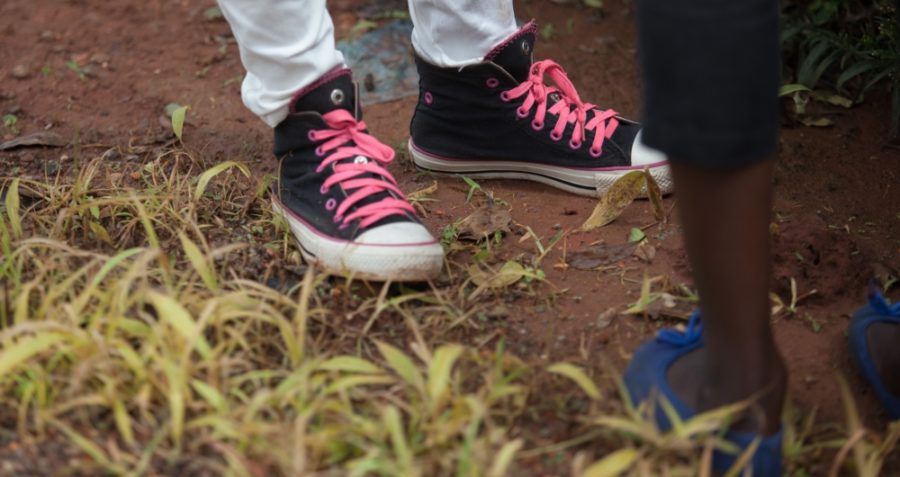HIV programmes for marginalised people in southern Africa need urgent protection
 © Frontline AIDS/Gemma Taylor 2018
© Frontline AIDS/Gemma Taylor 2018
For sex workers and people who use drugs – who are already living precariously – COVID-19 is having a devastating impact and we are calling for urgent action to address their health needs.
On 21 July, we sent a statement – jointly with ARASA, Aidsfonds, MSF Southern Africa and Pathfinder Mozambique – to the Southern African Development Community (SADC) Secretariat. The joint statement provides recommendations to guide member states to urgently act to sustain and protect HIV services for sex workers and people who use drugs. These population groups, along with other marginalised populations and their sexual partners, make up 62% of new HIV infections globally.
The statement is endorsed by 60 civil society organisations that want the SADC Secretariat to contribute more strongly to guide member states towards better coordination, information sharing and more consistent approaches in their response to COVID-19, particularly for marginalised populations.
Hardships and health risks
COVID-19 regulations are compounding the already difficult conditions many SADC citizens face. In South Africa alone, there were 250,000 arrests and 12 deaths at the hands of state armed forces in the first three months of lockdown[1]. The pandemic regulations, sometimes confusing and unevenly implemented, have limited cross border and internal migration, closed businesses and commerce, and resulted in huge economic stresses in the region.
For sex workers, this has meant a significant and continued loss of income and food insecurity. For people who use drugs this has resulted in significant hardship as well as health risks as a result of withdrawal from illicit drugs, which are now harder to access and more unsafe. With sex work and drug use and possession being criminalised, both groups are subject to surveillance and police action.
HIV and TB services for sex workers and people who use drugs are not only essential for health, but also provide additional social support and violence prevention services, but evidence of disruptions in treatment access have already been felt. The World Health Organization (WHO) reports that 36 countries[2], where almost half of the global number of people receiving antiretroviral treatment live, are reporting disruption in treatment services.
Globally, there are dire warnings about the potential increase in new HIV infections with modelling by WHO and UNAIDS demonstrating that a disruption in treatment is likely to lead to an additional 500,000 AIDS-related deaths[3]. These potential losses must not become a reality.
Endorse our statement
Civil society organisations based in or supporting work in the SADC region , may still endorse the statement (until 1 September), and add their own challenges and experiences delivering HIV services to sex workers and people who use drugs.
[1] https://businesstech.co.za/news/lifestyle/400831/230000-cases-opened-against-people-for-breaking-south-africas-lockdown-rules/ and https://www.timeslive.co.za/politics/2020-07-07-over-270000-arrested-for-breaking-lockdown-rules-bheki-cele/ 22 May, quoting South African Minister of Police Bheki Cele.
[2] https://www.who.int/docs/default-source/hiv-hq/disruption-hiv-hepatitis-sti-services-due-to-covid19.pdf?sfvrsn=5f78b742_6
[3] World Health Organisation Press Release, “The cost of inaction: COVID-19-related service disruptions could cause hundreds of thousands of extra deaths from HIV”
Nyasha Chingore is Programmes Lead at AIDS and Rights Alliance for Southern Africa (ARASA), a regional partner in the PITCH programme
Sally Shackleton is Lead: HIV Technical (Key Populations) at Frontline AIDS
The Partnership to Inspire, Transform and Connect the HIV response (PITCH) is a joint partnership between Frontline AIDS, Aidsfonds and the Netherlands Ministry of Foreign Affairs
Tags
COVID-19People who are marginalisedPeople who use drugsSex workers

